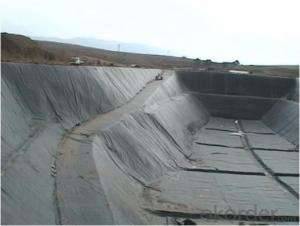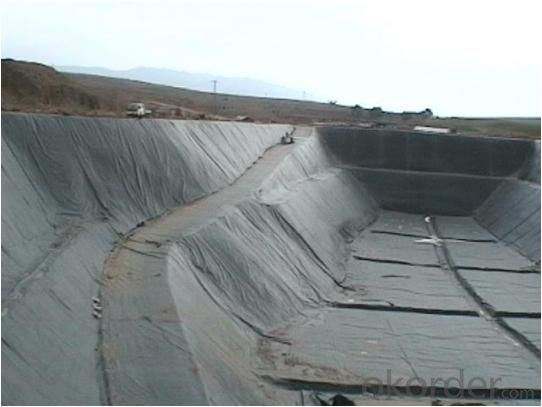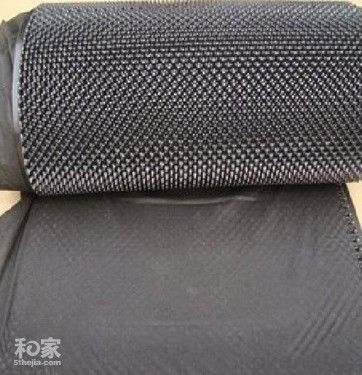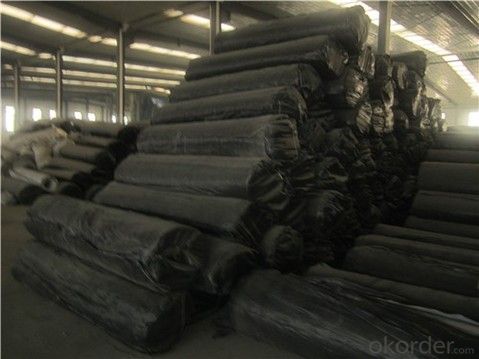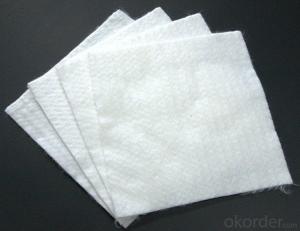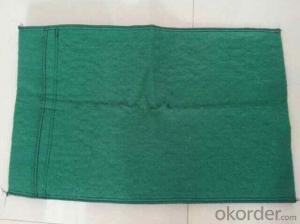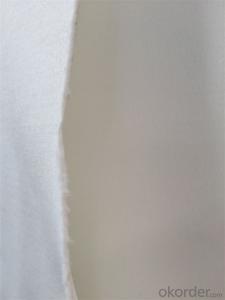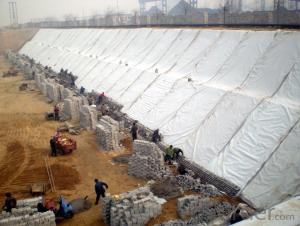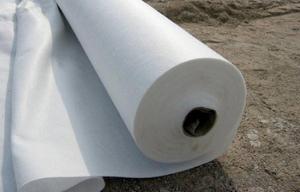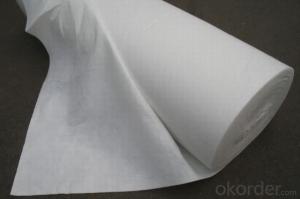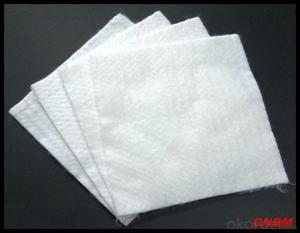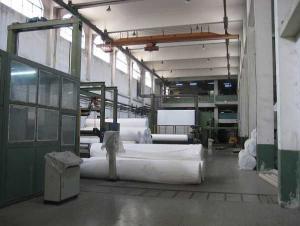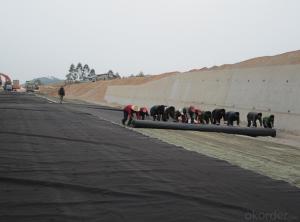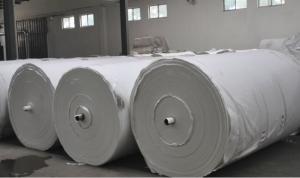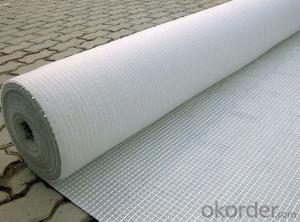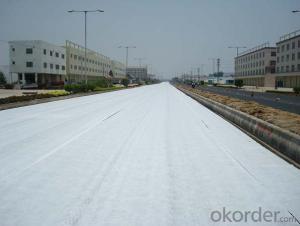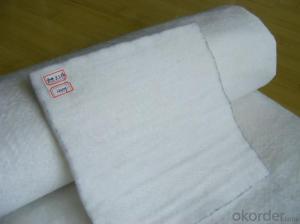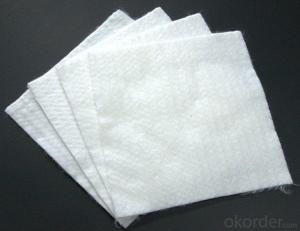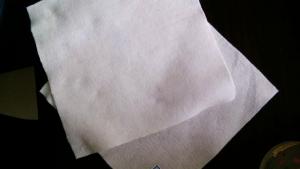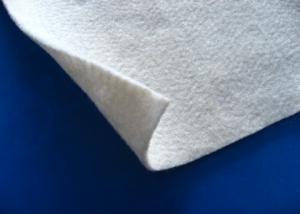Class 1 PP Needle Punched Nonwoven Geotextile Fabric for Civil Engineering
- Loading Port:
- Tianjin
- Payment Terms:
- TT OR LC
- Min Order Qty:
- 1000 g/m²
- Supply Capability:
- 10000 g/m²/month
OKorder Service Pledge
OKorder Financial Service
You Might Also Like
Packaging & Delivery
| Packaging Detail: | Polybag in roll |
| Delivery Detail: | 14-30days after receiving 30%deposite |
Specifications
Product name:Needle punched polypropylene nonwoven geotextile
Material:Polyester or Customized
Product Description
Introduction
| Company Name | Huizhou Jinhaocheng Nonwoven Fabric Co.,Ltd | ||||
| Running Years | more than 11 years | ||||
| Enterprise Property | Factory Direct | ||||
| Plant Area | Above 15000 Square Meters | ||||
| No. of workers | Above 100 | ||||
| Annual Sales Volume | $500,000,00 to $100,000,000(70%-80% domestic) | ||||
| Product | Needle punched polypropylene nonwoven geotextile | ||||
| Customers Distribution Area | the USA, Japan, Korea, Austrilia, Southeast Asia, European, Africa, & Latin America | ||||
| Needle punched polypropylene nonwoven geotextile | |||||
| Technics | Needle Punched Nonwoven | ||||
| Material | 100% PET/cotton/PP/Viscose or customized | ||||
| Shape | Pre-cut sheet & Roll | ||||
| Production | 1,000 tons per month | ||||
| MOQ | 3tons | ||||
| Color & Design | any color & design as your requests | ||||
| Width | 0.1m-3.4m | ||||
| Gram Weight | 50g/sm - 1000g/sm | ||||
| Using Area | Agriculture, Health Care, Medical Treat, Package, Clothes, Car, Geotechnique& Building,etc | ||||
Polyester Nonwoven Fabric Packing, Capacity and Delivery time | |||||
| Packing | Rolls in polybag with vacuum package or as customer request | ||||
| 20' FT | 5-6 tons | ||||
| 40' FT | 10-11tons | ||||
| 40' HQ | 12-14 tons | ||||
| DELIVERY | T/T: 14 days after receive advance payment | ||||
| LC at sight: 14 days after receive conformed L/C | |||||
| Terms of Payment | FOB Yantian Port of Shenzhen,CHINA | ||||
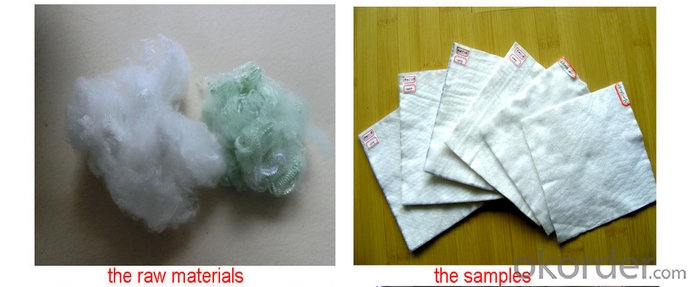
Our Property:
1.Color & Design can meet your needs of any kind
2.High degree of uniformity both on color & thickness
3.High thermostability
4.High gas permeability
5.High intensity & flexity
6.High color fastness & no fade
7.Phozy good & touch well
8.Anti-bacteria, moth-proof, anti-corrosion
9.Eco-friendly & biodegradable,reusable
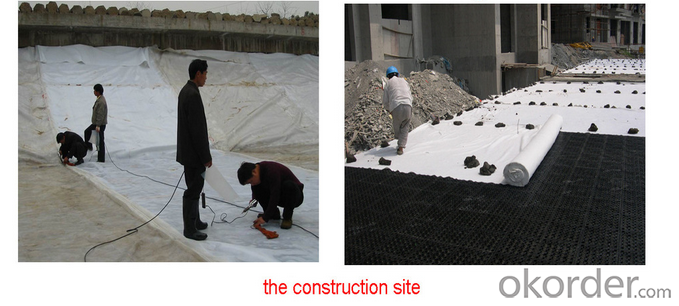
FAQ:
♦ Payment terms: by T/T or L/C |
♦ MOQ:2000 SQM |
♦ If you are interested in our products ,pls advice me the technical index,product weight etc,the more information the better..... |
- Q: What are the applications of geotextiles in geotechnical engineering?
- Geotextiles have numerous applications in geotechnical engineering, including soil stabilization, erosion control, drainage systems, and filtration. These versatile materials can be used to reinforce weak soils, prevent soil erosion on slopes, and improve the overall stability of various structures, such as roads, embankments, and retaining walls. Additionally, geotextiles can act as filters to separate different soil layers, allowing for proper water drainage and preventing clogging. Overall, geotextiles play a crucial role in enhancing the performance and longevity of geotechnical projects.
- Q: What is the separation between the roof waterproof protective layer and the waterproof layer?
- That is, at home and home boundaries to break off. Or can not achieve the effect of waterproof
- Q: Geotextile above allowed to plant grass?
- Geotextile above the grass To protect the slope, then the direct use of three-dimensional vegetation network can not Well! User name is the manufacturer phone! The The
- Q: On the road where the laying of geotextiles should be how to shop
- Like roadbed fill, fill the junction and so on can be shop, a layer of a layer of shop, fixed good.
- Q: Can geotextiles be used in sports field construction?
- Yes, geotextiles can be used in sports field construction. They are commonly used to improve drainage, stabilize the soil, and prevent weed growth in sports field projects.
- Q: What are the applications of geotextiles in road construction?
- Geotextiles have numerous applications in road construction, primarily in the areas of soil stabilization, drainage, and erosion control. They are used as a separation layer between the subgrade and the base course to prevent the mixing of different soil layers, thereby enhancing the stability and longevity of the road. Geotextiles also aid in improving the drainage system by allowing water to flow through the fabric while preventing soil particles from clogging the drainage system. Furthermore, they are employed to control erosion by preventing soil erosion from embankments and slopes, thereby maintaining the integrity of the road structure. Overall, geotextiles play a crucial role in enhancing the performance and durability of roads.
- Q: Can the roof waterproof with geotextiles?
- According to personal circumstances, but suggested to find professional personnel assessment. First of all, professional construction, roof waterproofing is a very test of professional skills work, need to hold the local construction administrative departments issued the job certificate. Professional construction units will be detailed survey and roofing drawings. Survey the actual situation of statistics, regional climate, housing and other factors, with the data obtained to develop professional construction program. Construction will be the future may cause housing flaws in the defect to be repaired, so to prevent the future. Secondly, qualified materials, roof leakage in China, about 20% of the material is unqualified, resulting in leakage of the roof of the situation. So in the choice of roof or roof of the material must meet the relevant national standards, and generally qualified roofing materials will have qualified documents and quality inspection departments of qualified certification. In the choice of decoration materials can request the relevant proof, at the same time to check the decoration materials production date, brand, batch number, specifications and so on information to ensure that the quality of qualified roofing materials. Finally, the acceptance of the project, because the roof or roof environment is very complex, so its decoration construction requirements must be strict. The process needs to have a waterproof, leak-proof, anti-seepage function, the summer high temperature can be high temperature, anti-ultraviolet, cold winter to have anti-freeze-resistant low temperature, daily sunshine to have anti-aging and so on.
- Q: What are the factors to consider when specifying geotextiles?
- When specifying geotextiles, it is important to consider factors such as the type and purpose of the project, the desired functions of the geotextiles (filtration, separation, reinforcement, etc.), the site conditions, the expected loads and stresses, the required durability and longevity, the installation and maintenance requirements, and the cost-effectiveness of different geotextile options.
- Q: What are the advantages of using geotextiles in green roof systems?
- The advantages of using geotextiles in green roof systems include improved drainage, erosion control, and increased structural stability. Geotextiles help prevent soil erosion by allowing water to drain through while retaining the soil. They also provide a strong base for the green roof system, enhancing its structural integrity. Additionally, geotextiles can act as a filter, removing pollutants and sediments from rainwater runoff, resulting in improved water quality.
- Q: Are geotextiles resistant to hydrolysis?
- Yes, geotextiles are generally resistant to hydrolysis.
Send your message to us
Class 1 PP Needle Punched Nonwoven Geotextile Fabric for Civil Engineering
- Loading Port:
- Tianjin
- Payment Terms:
- TT OR LC
- Min Order Qty:
- 1000 g/m²
- Supply Capability:
- 10000 g/m²/month
OKorder Service Pledge
OKorder Financial Service
Similar products
Hot products
Hot Searches
Related keywords
